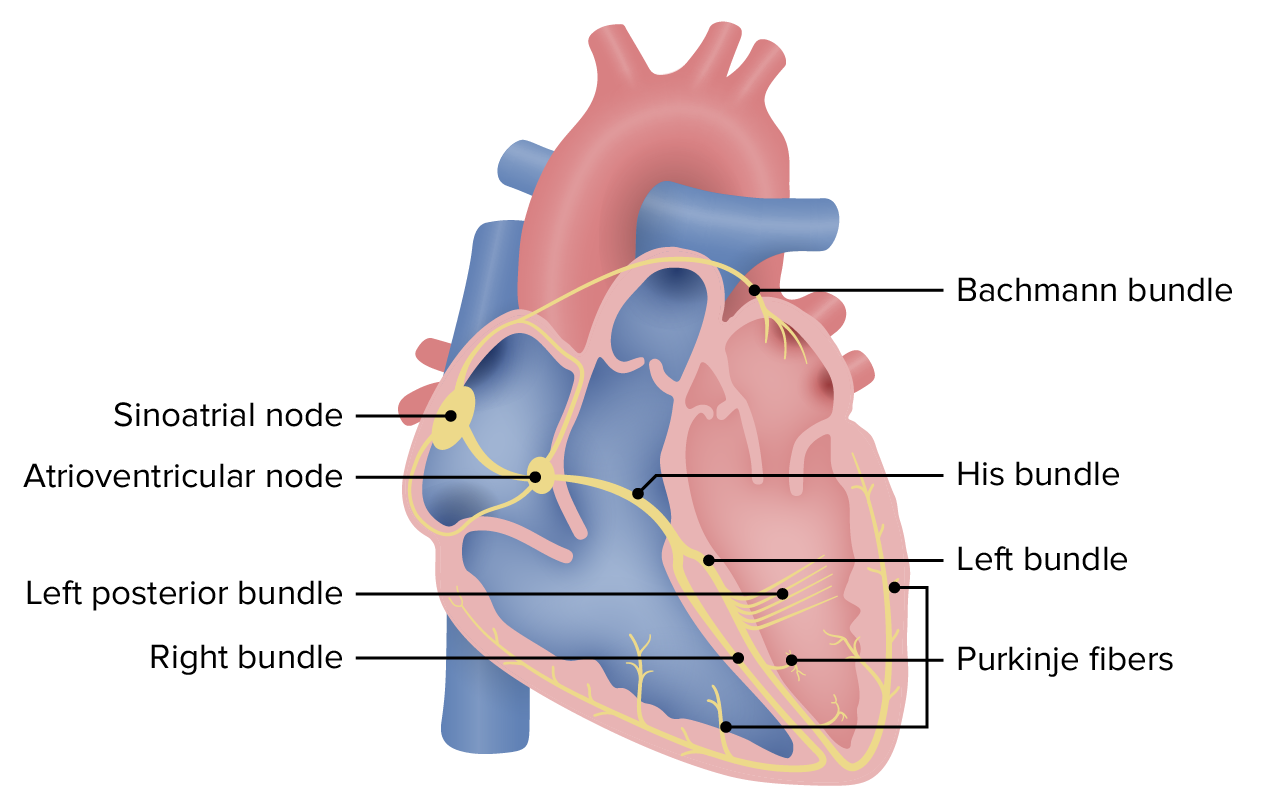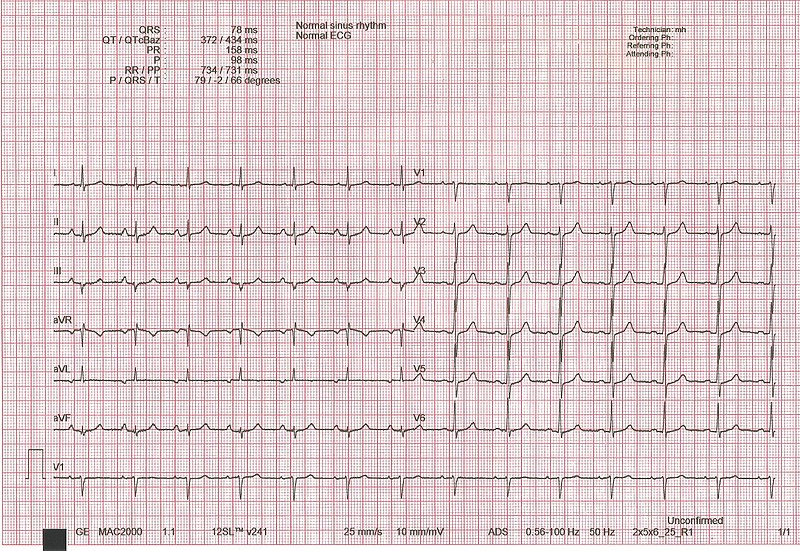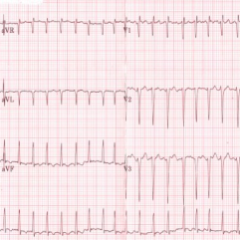Playlist
Show Playlist
Hide Playlist
Tachycardia: Atrial Fibrillation: Pathogenesis
-
Slides Tachyarrhythmia Atrial Fibrilation Cardiovascular Pathology.pdf
-
Download Lecture Overview
00:01 Continue our discussion of dysrhythmia and conduction system diseases. 00:06 Remember once again with arrhythmias, we'll do two different categories or two major etiologic backgrounds. 00:14 One would be conduction system issues, the other one was vascular. 00:18 So for under conduction disease, we have looked at bradyarrhythmias. 00:23 Our topic now will take us into tachyarrhythmias. 00:27 And with tachyarrhythmias, we will focus upon SVT's at first, supraventricular tachycardias above the ventricles. 00:35 And we will then divide this into part one and part two. 00:38 In part one, we'll take a look at atrial fibrillation and atrial flutter. 00:42 Let's begin. 00:44 Now with AFib, exceedingly common rhythm especially in elder patients. 00:51 So as we get older - well, a number of things start slowing down. 00:55 In this case, things start speeding up. 00:58 And by that, I mean that the normal physiology as we get older unfortunately starts losing its effect, maybe the kidneys will start decreasing GFR. 01:08 You end up developing or end up accumulating more creatinine. 01:11 As we get older, our ability to protect our cell membrane from free radicals starts diminishing. 01:17 The ability to have proper conduction, remember for your entire life, when you had this inherent pacemaker in the heart known as the SA node, it continues - I mean you would expect at some point when you get older that perhaps, it's not as efficient and effective as it once was. 01:34 And so in elderly people, well, there's every possibility that atrial fibrillation might be taking place. 01:40 And anytime there's an AFib, what are you worried about? Well, you're worried about that increased turbulence within the atrium and so therefore may result in stasis. 01:51 And with that stasis, you're worried about Virchow's triad. 01:56 One of the components of Virchow's triad referring to formation of a clot is what you are truly worried about. 02:05 With that clot formation, of all the sequelae of your clot formation and the embolization of the thrombus moving forward through the left atrium specifically. 02:15 Which one are you worried about the most? Through the carotid artery and you're worried about a cerebral vascular accident such as a stroke. 02:23 Now keep in mind that you could have an embolization and might end up in the SMA; superior mesenteric artery, resulting in ischemic and bowel disease that is also an emergency. 02:35 Isn't it? Or it may result in renal artery resulting in renal artery stenosis. 02:40 All that you're doing is following the pathway of a clot or thrombus from the left atrium and distally into whatever organ system. 02:50 So what do you wanna give to this patient prophylactically? A blood thinner such as warfarin.
About the Lecture
The lecture Tachycardia: Atrial Fibrillation: Pathogenesis by Carlo Raj, MD is from the course Arrhythmias: Basic Principles with Carlo Raj.
Included Quiz Questions
Which of the following statements about atrial fibrillation is FALSE?
- The risk of stroke is not increased in patients with asymptomatic atrial fibrillation.
- 15-20% of strokes are due to atrial blood clot embolism as a result of atrial fibrillation.
- Stroke is the most devastating complication of atrial fibrillation.
- Atrial fibrillation increases the risk for stroke by 4 -5 fold.
- Atrial fibrillation is due to disorganized electrical activity in the atrium.
Customer reviews
5,0 of 5 stars
| 5 Stars |
|
1 |
| 4 Stars |
|
0 |
| 3 Stars |
|
0 |
| 2 Stars |
|
0 |
| 1 Star |
|
0 |
Explica exactamente lo que es, me ha ayudado mucho para dar un exposicion del tema







